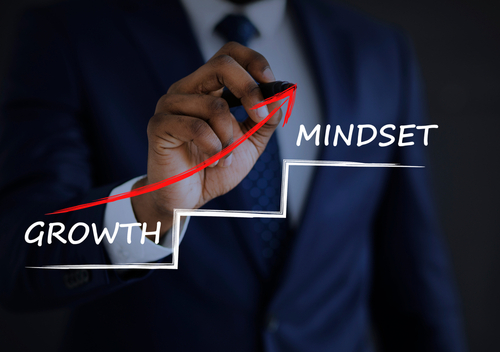The global economy is incredibly dynamic, meaning that technologies, strategies, and mindsets that are successful today may be less successful or even counterproductive in the near future. Today’s economy is also highly driven by human talent as one of the most important assets an organization possesses. Combined, these two features of the modern economy mean that employees who can not only adapt to change but also anticipate change and help navigate and capitalize on that change will have an edge.
What’s a Growth Mindset?
Therefore, a key employee skill is what’s known as a growth mindset. A growth mindset is individuals’ willingness to take on new challenges. As Joanna York writes in an article for BBC Worklife, the idea of a growth mindset first emerged in the late 1980s as a way to help explain why some intelligent children stumbled in the face of challenges despite their underlying abilities.
“The idea was that the students’ attitude towards taking on a challenge, rather than their innate ability, was a key determiner for success,” writes York. “In other words, our ideas about how able we are to do something can have a significant impact on the outcome of a task.”
Fixed vs. Growth Mindset
The concept was further honed by Stanford professor and psychologist Carol Dweck, who narrowed the concept to two approaches that can determine results: fixed mindset and growth mindset. Those with a fixed mindset believe their abilities are essentially fixed, while those with a growth mindset believe their abilities can adapt and change.
“While some people may naturally lean more one way than the other, people don’t outright have either a fixed or growth mindset to all problems, full stop—instead, approaching a challenge with a growth mindset over a fixed mindset is a choice anyone can take,” writes York. But in certain situations, a fixed or growth mindset make take over and dominate a person’s outlook.
For example, when facing a setback, a fixed mindset may make someone feel simply inadequate, whereas a growth mindset will stimulate growth and encourage the person to adapt in order to rise to the challenge.
For individuals and their managers and mentors, cultivating a growth mindset means taking some moderate risks and being supportive during setbacks. The key is to focus on how to succeed in the future rather than dwelling on past failures.
Lin Grensing-Pophal is a Contributing Editor at HR Daily Advisor.

